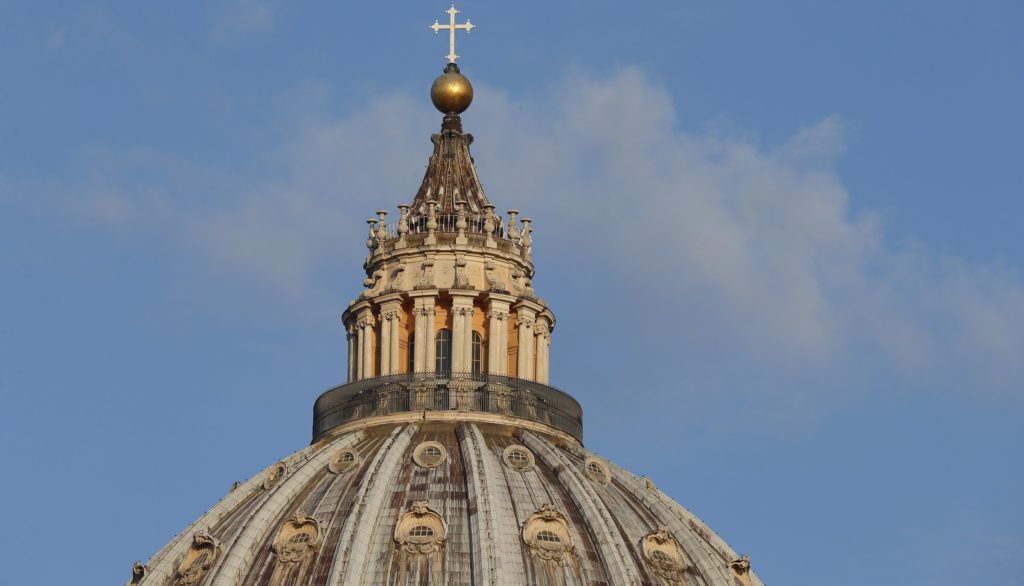"He who is faithful in a little is faithful also in much; he who is unjust in a little is unjust also in much" (cf. Lk 16:10). With this verse begins the Apostolic Letter in the form of a motu proprio of Pope Francis with some provisions on transparency in the management of public finances. It sets the tone for the reforms being carried out in the economic and financial sphere of the Holy See.
A new "anti-corruption law
With this new "anti-corruption law," the Pope requires all employees at managerial levels of the Holy See, and all those in active administrative, jurisdictional or control functions, to sign a declaration assuring that they have not received any final convictions, that they are not subject to pending criminal proceedings or investigations for corruption, fraud, terrorism, money laundering, exploitation of minors and tax evasion.
Likewise, the motu proprio requires these persons not to have cash or investments in countries with a high risk of money laundering or terrorist financing, in tax havens or holdings in companies that operate contrary to the Social Doctrine of the Church.
A commitment of Francis
This measure is a consequence of the tireless work being carried out to achieve greater transparency in Vatican finances, and the commitment that the pontificate of Francis has proposed in this area.
The new law is in line with that of May 19, 2020, when Pope Francis promulgated the new public procurement code. It was necessary, the Pope explains, because corruption "can manifest itself in different modalities and forms, even in sectors other than public procurement, and for this reason the regulations and best practices at the international level provide for those who perform key functions in the public sector particular obligations of transparency in order to prevent and combat, in each sector, conflicts of interest, clientelistic modalities and corruption in general." For this reason, the Holy See, which has acceded to the United Nations Convention against Corruption, "has decided to conform to best practices in order to prevent and combat" this phenomenon "in its various forms."
The Holy See has adhered to the United Nations Convention against Corruption, "has decided to conform to best practices to prevent and combat" this phenomenon in its various forms.
The measures
Pope Francis has therefore decided to to add articles to the General Regulations of the Roman CuriaThe new system, with a measure that concerns all those at the functional levels, from cardinal heads of dicasteries to vice-directors with five-year management contracts, and all those with active jurisdictional administration or control and supervision functions, will have to sign a declaration at the time of hiring and every two years thereafter, so as to ensure commitment to good practices. They will have to sign a declaration at the time of hiring and every two years thereafter, so as to ensure commitment to good practices.
In addition, they are required to testify that they have not been convicted by a final judgment, either in the Vatican or in other States, and that they have not benefited from a pardon, amnesty or grace, and have not been acquitted due to statute of limitations. In addition, they must also declare that they are not subject to pending criminal proceedings or investigations for participation in a criminal organization, corruption, fraud, terrorism, laundering of proceeds of crime, exploitation of minors, trafficking or exploitation of human beings, tax evasion or avoidance.
Transparency statement
They must also declare that they do not hold, even through intermediaries, cash or investments or shares in companies or enterprises in countries included in the list of jurisdictions with a high risk of money laundering (unless their family members are resident or domiciled for proven family, work or study reasons).
They must guarantee, to the best of their knowledge, that all goods, movable and immovable, owned or held by them, as well as remuneration of any kind they receive, come from licit activities. Also significant is the request to "not have" shares or "interests" in companies or enterprises that operate for purposes contrary to the Social Doctrine of the Church.
No 40 euro gifts
The Secretariat for the Economy may carry out checks on the veracity of the declarations made on paper by the declarants, and the Holy See, in case of false or mendacious declarations, may dismiss the employee and claim damages.
Finally, it is forbidden - and this novelty affects all employees of the Roman Curia, the Vatican City State and related bodies - to accept, by reason of their office, "gifts or other benefits" of a value greater than 40 euros.
It is forbidden to accept or solicit, for oneself or for persons other than the Entity in which one serves, by reason of or on the occasion of one's position, gifts, presents or other goods whose value exceeds forty euros.
General Regulations of the Roman CuriaArticle 40, paragraph 1, n)
Undoubtedly, the Holy See is being a reference with the reforms it is carrying out in the area of financial transparency, perhaps because it had much to change in this area. This new law adds to the already good number of reforms that have been taken in this sense. And it seems that they will continue to work along the same lines.









